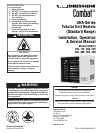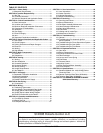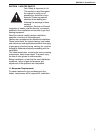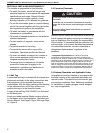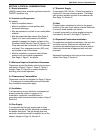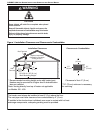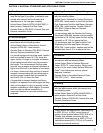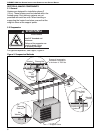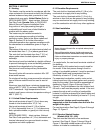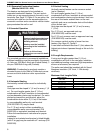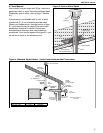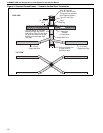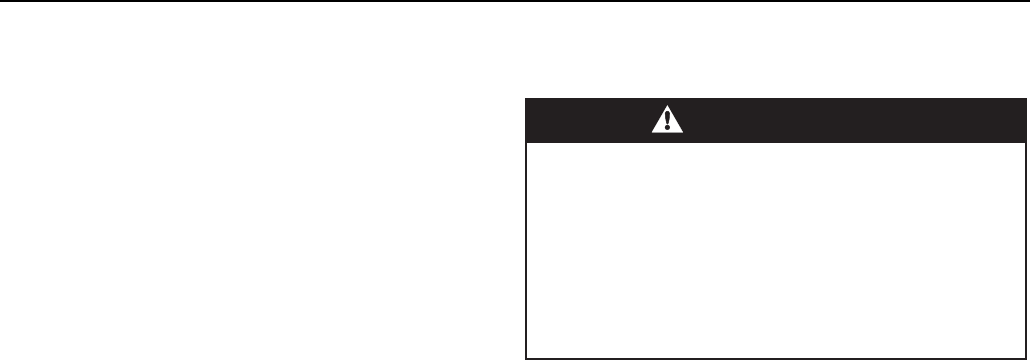
COMBAT
®
UHA UNIT HEATER INSTALLATION OPERATION AND SERVICE MANUAL
2
SECTION 2: INSTALLER RESPONSIBILITY
The installer is responsible for the following:
• To install the heater, as well as the gas and
electrical supplies, in accordance with applicable
specifications and codes. Roberts-Gordon
recommends the installer contact a Local
Building Inspector or Fire Marshal for guidance.
• To use the information given in a layout drawing
and in the manual together with the cited codes
and regulations to perform the installation.
• To install the heater in accordance with the
clearances to combustibles.
• To furnish all needed materials not furnished as
standard equipment.
• To plan location of supports, vents and air
intakes.
• To provide access for servicing.
• To provide the owner with a copy of this
Installation, Operation and Service Manual.
• To never use heater as support for a ladder or
other access equipment and never hang or
suspend anything from heater.
• To ensure there is adequate air circulation
around the heater and to supply air for
combustion, ventilation and distribution in
accordance with local codes.
2.1 Wall Tag
A laminated wall tag is included with the heater as a
permanent reminder of the safety instructions and
the importance of the required clearances to
combustibles. Affix the tag by peeling off the backing
of the adhesive strips on the rear surface and
position the tag on a wall near the heater.
A copy of the wall tag (P/N 91040031) is illustrated
on the back cover.
Know your model number. Model number is found
on the heater and in the Installation, Operation and
Service Manual. See Page 9, Figure 3 through Page
14, Figure 9.
2.2 Corrosive Chemicals
Roberts-Gordon cannot be responsible for ensuring
that all appropriate safety measures are undertaken
prior to installation; this is entirely the responsibility
of the installer. It is essential that the contractor, the
sub-contractor, or the owner identifies the presence
of combustible materials, corrosive chemicals or
halogenated hydrocarbons* anywhere in the
premises.
* Halogenated Hydrocarbons are a family of chemical
compounds characterized by the presence of halogen ele-
ments (fluorine, chlorine, bromine, etc.). These compounds are
frequently used in refrigerants, cleaning agents, solvents, etc. If
these compounds enter the air supply of the burner, the life
span of the heater components will be greatly reduced. An out-
side air supply must be provided to the burners whenever the
presence of these compounds is suspected. Warranty will be
invalid if the heater is exposed to halogenated hydrocarbons.
2.3 National Standards and Applicable Codes
All appliances must be installed in accordance with
the latest revision of the applicable standards and
national codes. This refers also to the electric, gas
and venting installation. Note: Additional standards
for installations in public garages, aircraft hangars,
etc. may be applicable.
CAUTION
Do not use heater in an area containing corrosive
chemicals.
Avoid the use of corrosive chemicals to ensure a
longer life of the burner, heat exchanger and other
parts.
Failure to follow these instructions can result in
property damage.



